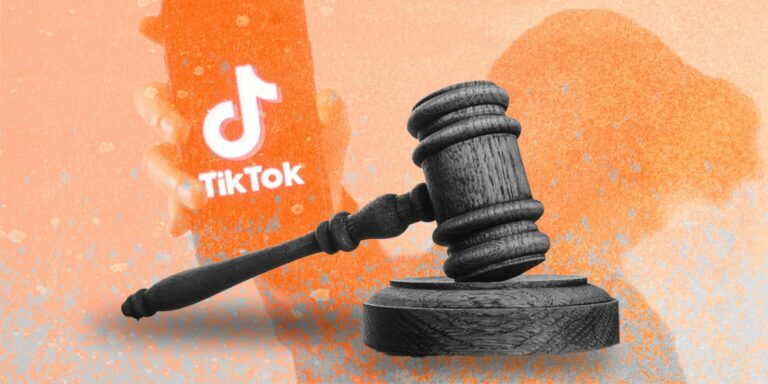The global movement denouncing the Zionist war of genocide going on in the Gaza Strip (and in the West Bank, at a lower intensity) – and in the context of that movement, most particularly, the youth movement that has developed in U.S. universities and is spreading from there to other countries – is the only glimmer of hope in the bleak and horrific scene of the destruction of Gaza. The intensity of reactions from pro-Israel circles against that movement is only a confirmation of the importance of this development, which it would not be exaggerated to describe as historic.
Indeed, the emergence of a mass movement sympathetic to the Palestinian cause in Western countries, especially in the home of the superpower without which the Zionist state would not be able to fight the current genocidal war, constitutes a very disturbing development in the eyes of the pro-Israel lobby. It threatens to establish among the new generation a rejection of Zionist barbarism that rivals the rejection of U.S. imperial barbarism more than half a century ago, which was one of the major factors leading Washington to stop its aggression against the Vietnamese people and withdraw its forces from their country in 1973.
This historical precedent is strongly present in the minds of Israel’s supporters in all Western countries, as the anti-Vietnam War movement included them all and even played a prominent role in the wave of leftist political radicalization among the student movement on a global scale at the end of the sixties. The alarm bell has hence rung in Zionist circles and their supporters, prompting them to launch a violent campaign against the movement standing in solidarity with the people of Palestine, seeking to silence it in various repressive ways, from ideological violence to police violence accompanied by legal violence.
These oppressive efforts are not new, of course, but are part of an ideological war that started from the beginning of the Zionist project and intensified as it moved into implementation in Palestine under the auspices of British colonialism. The battle reached its peak in the immediate aftermath of World War II, when the United Nations, which was newly established at the time under the hegemony of countries of the Global North, considered the issue of partitioning Palestine and granting the Zionist movement the right to establish its state there. At that stage, the Zionist effort in the “war of narratives” focused on portraying the Palestinians’ refusal of the establishment of a Zionist state on most of their homeland’s territory as if it were inspired by “antisemitism” of a sort akin to the Nazis’ hatred for the Jews and constituting a continuation of it. They portrayed the Zionist seizure of most of the land of Palestine in 1948, coupled with the uprooting of most of its indigenous people, as the last battle against Nazism, thus distorting and disguising the reality of that usurpation, which was in fact the last episode of settler colonialism (*).
Over time, Zionist propaganda became more fervent in its resort to labelling anyone hostile to the Zionist project as a Jew hater and a contin6uator of the Nazis. Two examples, among others, are Gamal Abdel Nasser, and after him Yasser Arafat, both depicted by that propaganda as counterparts of Adolf Hitler. This equation reached the height of absurdity and grotesque in the response of Menachem Begin, leader of the Likud Party whose fascist roots are well known, and Israeli Prime Minister when the Zionist army invaded Lebanon in 1982, to Ronald Reagan, then President of the United States who, in a letter to Begin, had expressed his concern about the fate of the civilian population in besieged Beirut. In his response, Begin wrote: “I feel as a Prime Minister empowered to instruct a valiant army facing ‘Berlin’, where, amongst innocent civilians, Hitler and his henchmen hide in a bunker deep beneath the surface.”
The zeal of Zionist propaganda increased in its resort to accusations of anti-Semitism and comparisons to Nazism, as the image of the Zionist state became more degraded in international public opinion, and Western public opinion in particular. The fact is that this image has steadily deteriorated as the State of Israel has moved from the myth of a state redeeming the Nazi extermination of the Jews and run by pioneers of a socialist dream led by a “workers’ party”, to the reality of an expansionist militaristic state, led by the far right. This image transformation accelerated with the Israeli occupation of Lebanese territories (1982-2000) and the suppression of the first intifada in the occupied territories in 1967, which reached its peak in 1988, and later with the repeated bloody and destructive attacks on the Gaza Strip, starting with the “Gaza massacre” in 2009.
As the image of the Zionist state declined, its supporters’ propaganda focused on rejecting any radical criticism of it by accusing it of antisemitism. In 2005, some pro-Israel circles formulated a definition of antisemitism that included “examples” such as “comparisons of contemporary Israeli policy to that of the Nazis” (meaning that the comparison by the Zionists between several of their Arab enemies and Nazism is acceptable, just as the comparison between any state and Nazism is, except for the Zionist state, whose comparison with Nazism constitutes a form of antisemitism simply because it is “Jewish”) and “claiming that the existence of a State of Israel is a racist endeavour” (in other words, describing any project that aims to create a state on the basis of racial or religious discrimination as racist is acceptable, except for the “Jewish State” project, for which that label is taboo).
In 2016, the International Holocaust Remembrance Alliance (IHRA) adopted that definition, prior to a campaign it launched in various Western countries, calling on them to officially adopt it to stifle criticism of Zionism. The campaign succeeded in getting the parliaments of countries such as Germany and France to adopt the definition. It culminated in an attempt to get the UN General Assembly to adopt the same definition. This attempt failed, however, especially after the Special Rapporteur on contemporary forms of racism advised in October 2022 against adopting the IHRA definition. Of course, the fervour among the supporters of the Zionist state has returned and reached frenzied forms in the face of the current escalation of global condemnation of the genocidal war that the Zionist state has been waging in Gaza for seven months.
Since the United States itself is a major theatre for this condemnation, especially among the student youth as emphasised at the beginning of this article, the House of Representatives in the U.S. Congress adopted on the 1st of May a bill, submitted by a Republican representative in October of last year, calling for the adoption of the IHRA definition as a basis for “the enforcement of Federal antidiscrimination laws concerning education programs or activities, and for other purposes”. 320 representatives voted in favour of this bill, compared to 91 who voted against it. 133 Democratic Party representatives joined the Republicans in voting in favour of the bill, while 70 Democratic Representatives and 21 Republican Representatives voted against it (with 18 abstaining from voting). While it was normal for representatives of the Democratic Left to vote against the pro-Israel bill, it was very odd to see representatives of the Republican far right reject it too, including the frenetic reactionary Representative Marjory Taylor Greene, the most extreme of Donald Trump’s supporters – so much so that the latter almost appears moderate in comparison to her.
Do not, dear reader, think that the rabid Republican rightists objected to the effort aimed at suppressing the movement denouncing Israeli barbarism because of attachment to the freedom of speech. They are the most enthusiastic devotees of the Zionist state, especially since the latter’s government has been including people who, like them, belong to the far right. They are also in favour of suppressing freedom of speech whenever it concerns opinions that they hate, and they frantically call for an escalation of repression against the students who oppose Israel’s genocidal war. The reason for their opposition to the bill lies simply in their loyalty to traditional antisemitism, which has long inspired a major section of Zionism’s supporters. These antisemites agree with Zionism in the view that the State of Israel is the Jews’ sole homeland, while hating the presence of Jews in their countries (just as they hate the presence of Muslims).
Whereas one of the traditional antisemitic arguments for hostility towards the Jews was to hold them collectively responsible for “the killing of Christ” on the pretext that the Gospels blamed a Jewish crowd for sentencing Christ to death, and since the examples of antisemitism given by the IHRA definition included “claims of Jews killing Jesus”, the Republicans who voted against the bill justified their position not by the fact that it would prevent criticism of Zionism and its state, which they of course welcome, but by their fear that it would prohibit traditional antisemitic positions, if turned into law. That is why the most enthusiastic supporters of the “Jewish” state objected to restricting the freedom of true Jew haters. Should one laugh or cry?
* My book The Arabs and the Holocaust: The Arab-Israeli War of Narratives (2010) is dedicated to refuting attempts to portray the Arab stance as if it were inspired by Nazism. I also refuted the same effort regarding the “Al-Aqsa Flood” operation in my recent article “Gaza: October 7th in Historical Perspective”.





